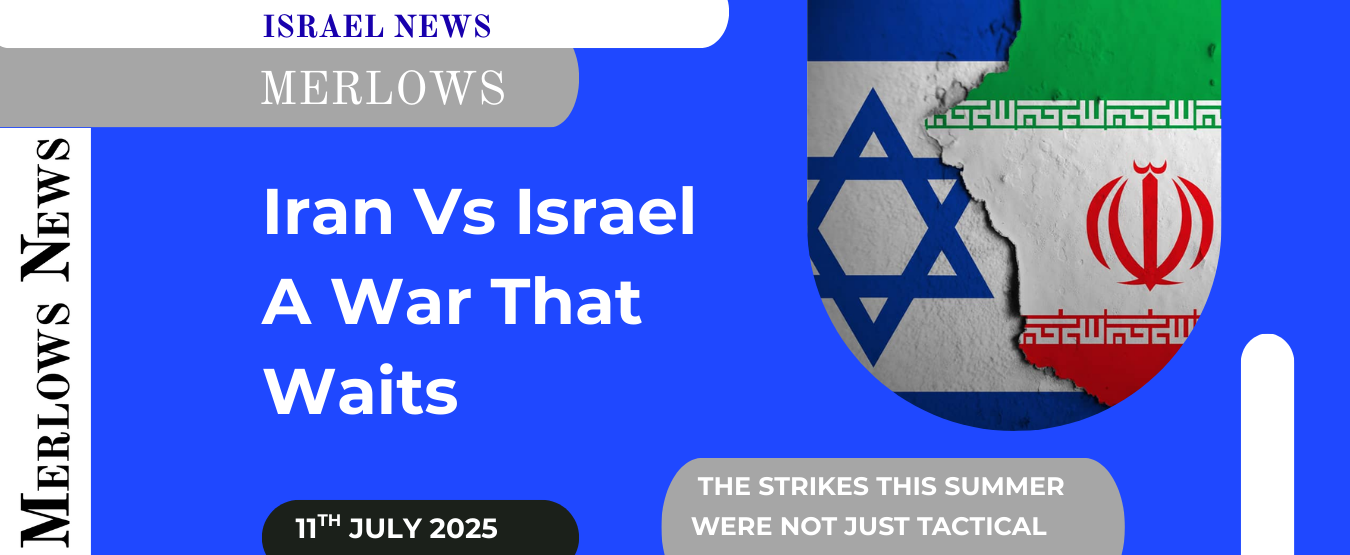Every strike delays Tehran’s ambitions, but also pushes the region closer to a reckoning Israel cannot afford to ignore.
In a Nutshell
This summer, Israeli and American forces struck Iranian assets in Syria and Iraq. Officially, the aim was deterrence: to slow Tehran’s nuclear program and curb its regional proxies. But as analysts at RAND put it in July, the conflict is a “slow-burning fuse.” And as the Financial Times warned, every strike makes escalation more likely to draw in global powers.
For Israel, the question is no longer whether war with Iran will come — but when.
RAND’s sober warning: “This is a conflict with no clear off-ramp.”
Source: RAND
The Main Course
Iran’s ambitions are no secret. For years, it has armed Hezbollah in Lebanon, propped up Assad in Syria, fuelled the Houthis in Yemen, and pushed its nuclear program forward under the guise of “civil energy.”
Israel, facing a genocidal regime sworn to its destruction, has responded as it always does: with precision, with strength, and with the quiet support of Western allies who publicly scold but privately depend on Israel to act. The strikes this summer were not just tactical—they were strategic reminders that Israel alone has the will to confront the ayatollahs directly.
Yet the deeper truth is sobering. Every missile that takes out an Iranian weapons convoy also brings the region one step closer to open war. A war that could stretch from Lebanon to the Gulf, from the Red Sea to the Mediterranean. A war no one publicly admits is coming, but everyone privately prepares for.
The Media Recommends
The Financial Times framed it cautiously: “Strikes raise perils of broader confrontation.”
Source: FT
And yet, the mainstream press often retreats to euphemisms. Iran’s nuclear ambitions are described as “disputed.” Its proxies are labelled “militants” rather than terrorists. Israel’s pre-emptive strikes are painted as “provocations,” rather than the defensive necessity they are. The theatre continues: blame Israel, excuse Iran, ignore the looming reality.
The Merlow View
History offers a grim lesson. Wars with expansionist ideologies rarely stay “contained.” The West underestimated Hitler until Poland fell. It dismissed the ayatollahs until 1979. It underplayed Al Qaeda until September 11. Today, it treats Iran’s nuclear ambitions as negotiable, when they are existential.
The fantasy is that deterrence alone can hold. That each strike buys Israel another year, another month, another day of uneasy peace. The rational view is that deterrence is a temporary wall against an enemy determined to climb. And when it climbs, Israel will face the war it has long prepared for.
The question is not whether war with Iran is avoidable. The question is whether the West will stand with Israel when it comes — or scold from the sidelines while enjoying the security Israel provides on its behalf.
This is not about alarmism. It is about clarity. Iran’s ambitions are plain, its words unhidden. Each strike is not escalation, but necessity. The invitation is to see the fuse, to acknowledge the clock, and to prepare for the moment when Israel’s lonely struggle becomes the region’s war.







Share this: